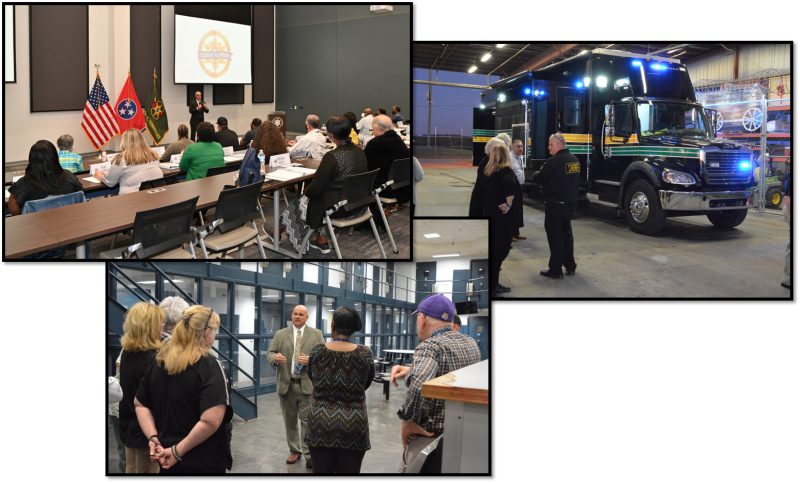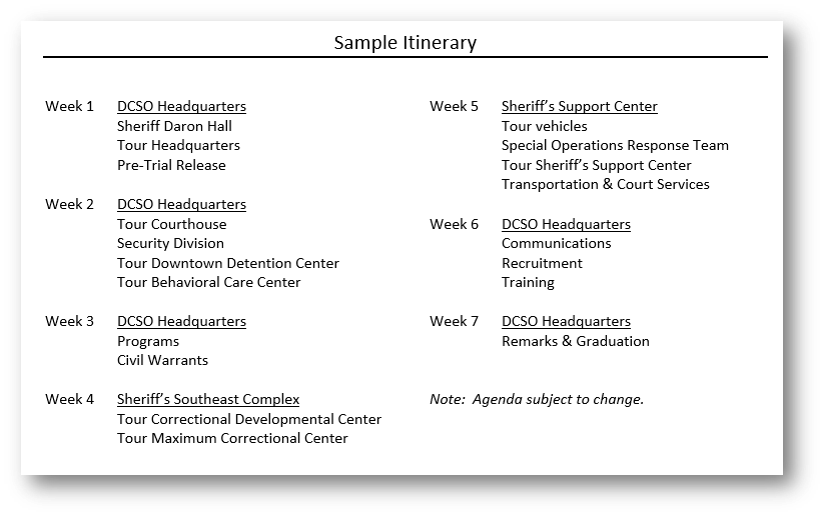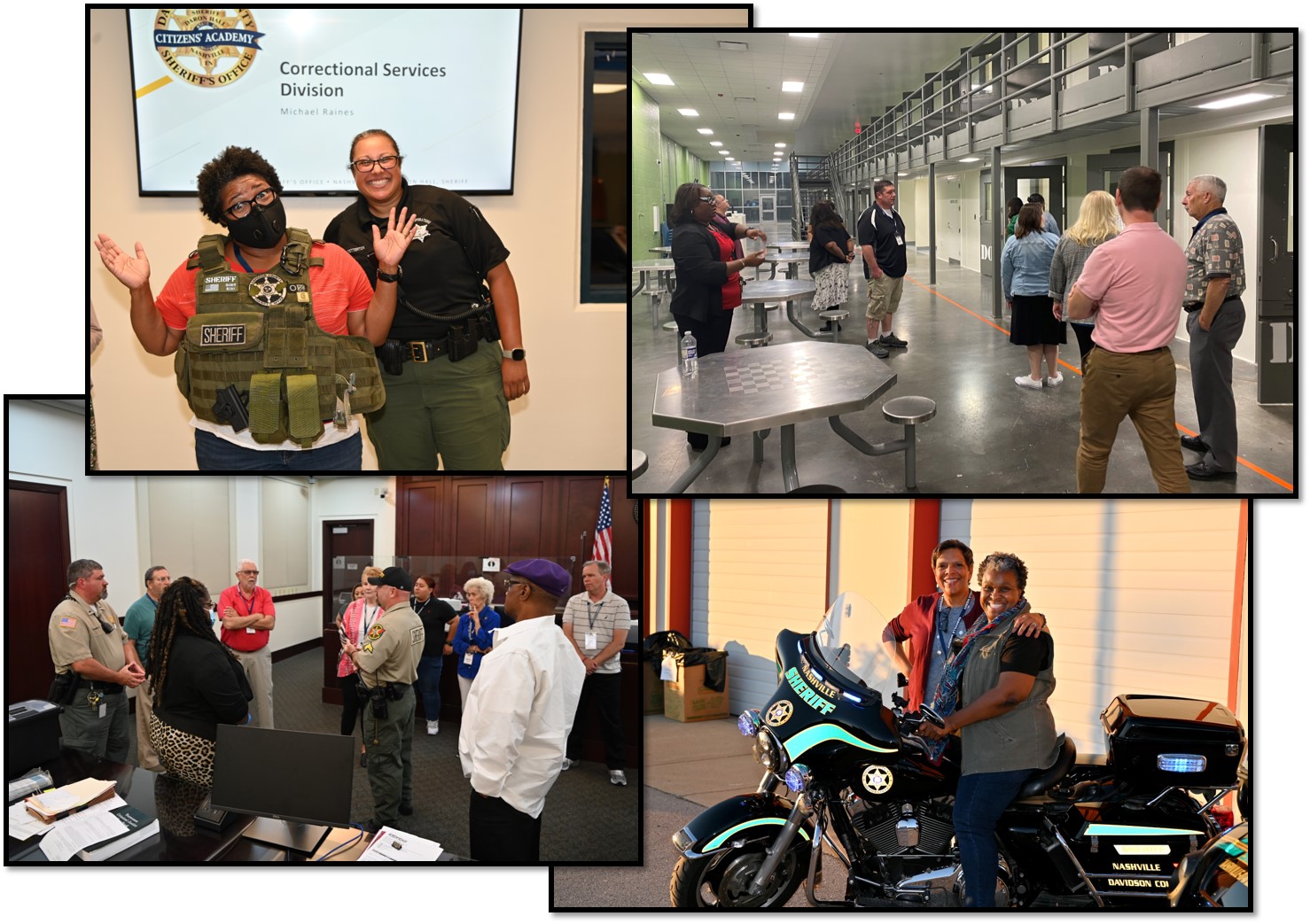Skip to content

*NOTE: This is not a DCSO training to become a correctional officer. If you would like to become a correctional officer apply here.
The purpose of the Sheriff’s Citizens’ Academy is to increase the community’s awareness and knowledge of the day-to-day operations of the DCSO. Participants meet once a week for seven weeks on Tuesday evenings (5:30-9:00) at our different facilities in Nashville. Dinner will be provided. Each class highlights a different division of the DCSO. The academy instructors are DCSO agency personnel. Each instructor will teach in his/her area of expertise and has years of training and experience to share.


Program Objectives:
-
to gain insight on the functions of the DCSO
-
to know the difference (uniqueness) between the DCSO and other sheriff’s offices
-
to have a better understanding of the challenges facing the DCSO
-
to see the efforts in reducing recidivism and decriminalizing mental illness
-
to help the DCSO learn the concerns of the community

Requirements:
-Must be 21 years old or older
-Must not have a criminal history other than minor traffic violations
-Must be able to attend 6 of the 7 classes to graduate from the academy
-Classes will meet at various DCSO facilities in Nashville. Participants must provide their own transportation.
“…The Sheriff’s Citizens’ Academy was one of the most profound community learnings I have ever experienced. I was truly blown away at the end of each evening. I was moved by the employees and their sense of service to individuals that many in our society have “thrown away or written off.” I have said to some of my family members, if I was 20 years younger, I would ponder changing my career path – specifically toward the Behavioral Care portion of the office. I truly believe that center will begin to show the city of Nashville and beyond what can happen when you show “compassion,” to those who are mentally challenged, addicted and have had severe traumas in life.”
-Denise Yeargin, SCA Graduate Class 001






